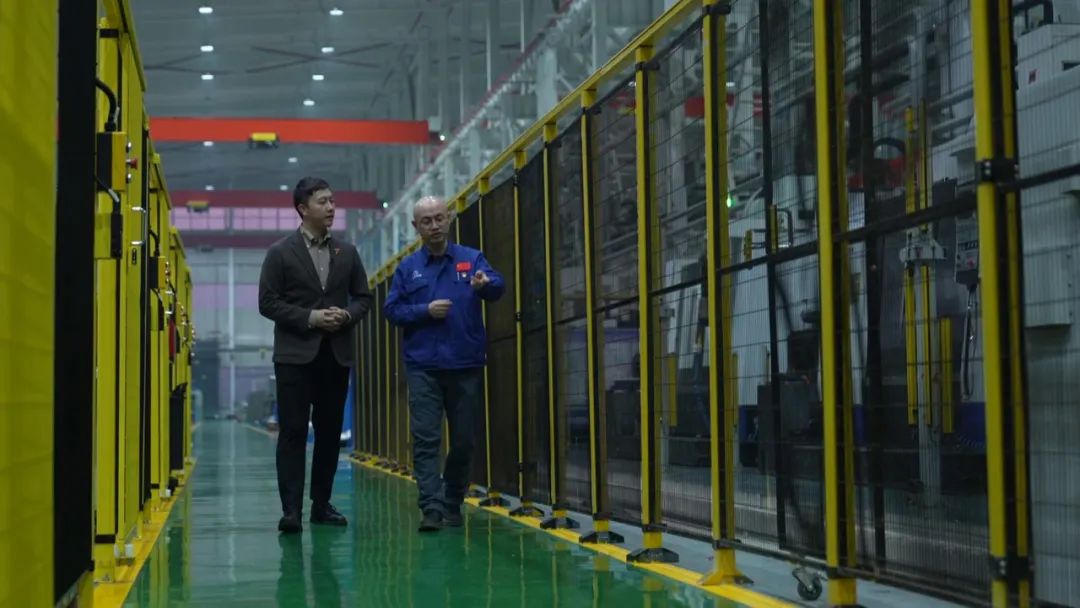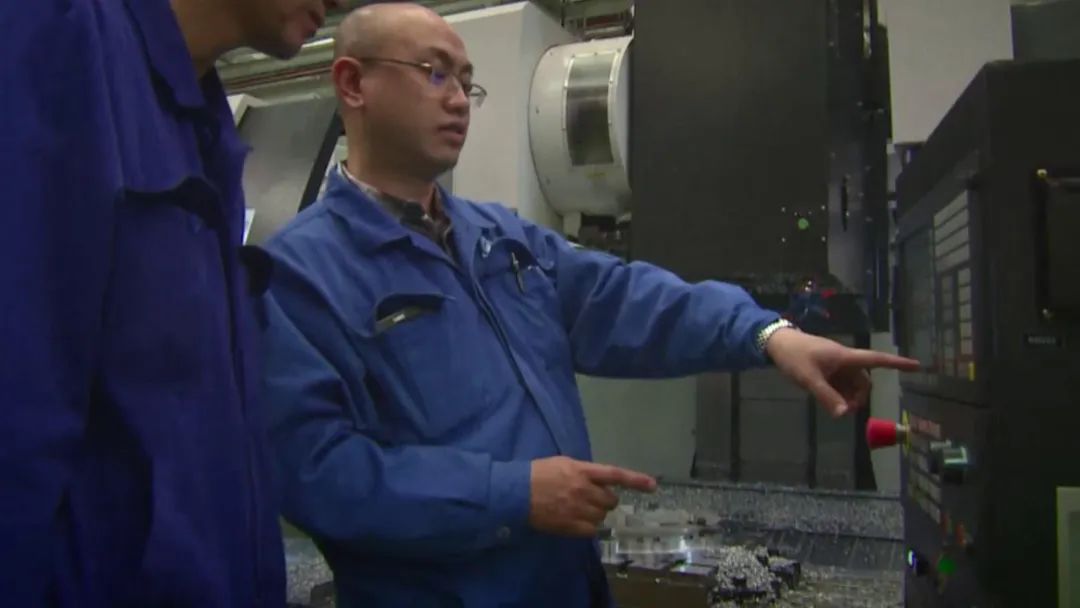
Dai Tianfang introduces the manufacturing line.
With the intensive occurrence of major events in China's aerospace industry, China's the relevant technological production capacity involved has also been rapidly upgrading. For Dai Tianfang, a chief technician of computer numerical control (CNC) milling, this means both pressure and impetus.
Dai Tianfang, a deputy to the 14th National People's Congress (NPC) and chief CNC milling technician of his factory, has worked in a workshop of a flexible manufacturing line for decades.
Today, the workshop with a larger area, more equipment and richer products, has been completely different from that of decades ago. What has impressed him more is the way technicians produce. "Many jobs have been replaced by new technologies, but this does not mean workers are useless. The workers are supposed to engage in more advanced and creative work," he pointed out.
Because of such insight, Dai Tianfang has been paying close attention to the cultivation of high-quality interdisciplinary talents in the aerospace industry in recent years. His proposals to be presented to this year’s two sessions, that is, the National People's Congress (NPC) and Chinese People's Political Consultative Conference (CPPCC), are also related to this aspect.

Dai Tianfang elaborates on the equipment.
"With the integration of skills and technology, the boundary has been growing blurred. In addition to their separate processing knowledge, technicians have to master other knowledge and skills, including mechanical principles, electricity, digital control, and parameter adjustment in machine tool operation. At the very beginning of operating the CNC machine, I was particularly shocked and had a feel that this would be the direction of future development," Dai Tianfang recalled.
The iterative upgrading of China's aerospace technology has entered the fast lane. In the field of cabin processing for aerospace products, where Dai Tianfang has been specialized, weight control and precision control are the two core problems to deal with. The boring and milling combined weight reduction method proposed by Dai can serve to have the weight accuracy within 0.1 kg for a nearly-100-kilogram cabin.
According to him, it is obvious that the cycle of technology iteration has grown shorter and shorter in recent years, and the composite processes of production have grown more and more complex. This has brought both pressure and impetus. “Now that we have chosen to serve in the aerospace manufacturing industry, we should strive to be the bellwether by constantly innovating, exploring and translating new technologies and methods into practice,” he said.

Dai Tianfang sets parameters on the operation panel.
When it comes to the future development of China's aerospace industry, Dai Tianfang believes that it is certain that the development will be towards high precision and unmanned operation. “The prevalent ‘unlighted factory’ means that the machinery can function to produce independently without man power involvement. The aerospace manufacturing industry will surely be the first to adopt these new technologies."
From the very beginning to have parts polished manually to today's intelligent programming and processing, the technology upgrading in China's aerospace industry has entered the fast lane. "We have never been afraid of facing challenges in the aerospace industry," he said with shining smile.









